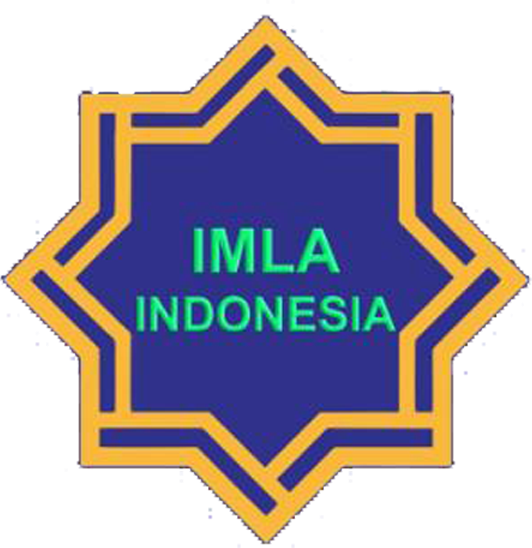Towards the Use of Modern and Basic Skills in Teaching Arabic to Non-Native Speakers at The Junior Secondary Schools’ Level in Nigeria/ نحو استخدام المهارات الأساسية الحديثة في تعليم اللغة العربية للناطقين بغيرها في المرحلة المتوسطة في نيجيريا
Abstract
Language is one of the features that human being is differed from other creatures, and it constitutes a great cognitive manifestation and mental characteristics. On this basis, the process of teaching languages in general requires necessary skills and techniques, so also the teaching of Arabic to non-native speakers requires basic skills and strategies. The main objective of this paper is to highlight the needs and justifications of using modern approaches towards teaching Arabic language to non-native speakers in junior secondary schools in Nigeria. The teaching process does not dispense with the necessary basic skills, which are the basis on which teachers build their activities in the classroom to send information and ideas to the minds of learners, and these skills did not stop inside the classroom only, but even outside it. These basic skills include: the skill of set induction, skill of classroom management, skill of asking questions, skill of reinforcement, skill of using chalkboard, and the skill of using various teaching method.
إن اللغة من المميزات التي انفرد الإنسان بها عن غيره من سائر المخلوقات, وهي تشكل أعظم ما تتجلى فيه مميزاته العقلية.وهي من الحاجات الأساسية اللإنسان, بها يقوم بينه وبين غيره علاقة تبادلية وثيقة. وعلى هذا الأساس تحتاج عملية التعليم اللغات بوجه عام إلى مهارات وتقنيات الازمة كما تتطلب تعليم اللغة العربية للناطقين بغيرها مهارات واستراتيجيات أساسية بوجه خاص. هدفت هذه الورقة إلفاء الضوء على مبررات استخدام المهارات الأساسية في تعليم اللغة العربية للناطقين بغيرها نحو الطلبة المرحلة المتوسطة في نيجيريا.لا تستغني عملية التدريس عن المهارات الأساسية الازمة، وهي الأساس التي يبني عليها المدرسين عملياتهم داخل الفصل لإرسال المعلومات والأفكار إلى أذهان المتعلمين، وهذه المهارات لم تقف داخل الغرفة الصف فحسب،بل حتى خارجها. وتحتوي هذه الورقة الي مقدمة ومنهجية البحث ومفهوم التدريس وأهمية المهارات التدريس ثم البيان حول بعض المهارات التدريس الأساسية في عملية التدريس ثم نتائج البحث والمقترحات والخاتمة والمراجع.
Keywords
Full Text:
PDF (العربية)References
Abdullah, M. A. (2017) Micro-learning strategy in the performance of Arabic education students in Nigeria, Journal of Research in Arts, Social Sciences and Education, Ahmed Bello University. Magazine (2), Issue (1), April 2018.
Adil, A. S., Samir, A., Walid, A. & Gassan, Y (2009) General Teaching Methods: A contemporary Application, Amman, House of Culture and Distribution, 1st Ed.
Ahmad, K.T. (1425H) Training of Teachers from Preparation to Practice, U.A.E; Dar Al-Kitab Al-Ja mi’i, 1st Ed.
Al-Fara, A. U. & Jamil, A. (2003) Modern guide in education and micro-teaching, Amman; House of Culture.
Al-Fara, A. U. (1417H) Impact of using micro-teaching technology in teacher education program of Arabic for non-native speakers. Amman; House of Culture, 2nd Ed.
Al-Osaili, A.I. (2013) Micro-teaching in the field of foreign language teaching and its application in the teacher education program of Arabic for non-native speakers.
Anwar, M. S. (2012) Education: Theories and Applications, Cairo; Anglo-Egyptian Library.
Brown, G. (1997) Micro-teaching: a program for teaching teaching skills. Trans by Muhammad, R.B. Cairo; Arab house of thought.
Daoud, H.D. (2012) Researcher’s Guide to Organizing and Clarifying Scientific Research in Behavioral Sciences, Gaza, Palestine.
Dawud, D. H. & Hamad, A. (2010) lectures on teaching skills. Gaza, Palestine.
Dhalal, M. M. (2003) Impact of Micro-teaching on the Performance of Female Students of Practical Education (Department of Art), College of Education, Umm Al-Qura University, Makkah Al-Mukarramah, an unpublished master’s thesis.
Hasnan, A. S. (2016) The impact of the micro-teaching strategy on the integrative science processes and micro-teaching skills among students of the fourth stage, College of Education, Babylon Education Directorate, Wasit University, Iraq, Journal of the College of Education, Vol 5, No. (20).
Hassan, H. Z. (1997) Teaching: A view of the nature of the concept, Cairo; 1st Ed.
Jabir, A.J., Sulaiman, A.& Fauzi, Z. (1985) Teaching Skills, Egypt, Dar Al-Nahda Al-Arabiya, 1st Edition.
Jan, M. S.(1423H), A guide to the Islamization of education and teaching methods. Makkah Al-Mukarramah, 1st Ed.
Kholoud, A. A. (2018) Micro-education and its role in qualifying the student-teacher, University of Najran, International Educational Journal, Volume (7), Issue (2).
Lawan, S.G. (2018) Impact of Micro-teaching skills on Nigerian Colleges of Education students teaching practice performance in North -west Geopolitical Zone, Nigeria, ABU Zaria, Unpublished Ph.D thesis.
Majida, M. S., Salah al-Din, K., Faramawy, M. F., Madiha, U. L., & Adel, H. A. (2007) Micro-teaching and its skills. Cairo, Dar Al Arabiya for Publishing and Distribution ISBN977-17-40660
Rida,T. A. & Abdel-Azim, S. (2017) Teacher training in the light of the experiences of some countries, 1st ed.
Rushdi, A. T. (1999) The teacher: his competencies preparation, training, Cairo; Dar Al-Fikr Al-Arabi
Sinan, A. A. (2012) Effect of early micro-teaching in developing teaching skills for students in the College of Physical Education, University of Diyala. PhD dissertation unpublished.
Sultan, S.D. (2009) Effect of Micro-teaching in Providing Mathematics Teacher- Students with Some Teaching Skills, Umm Al-Qura University. Makkah Al-Mukarramah, unpublished master's thesis.
Ubaid, J. M. (1426H) Teacher: his preparation, his training and his competencies. Jordan, Dar Safaa, 1st Ed.
Zainab, A.A. (2018) Effects of Micro teaching skills on student’s Performance in College of Education in Kano state, Nigeria, ABU Zaria, unpublished Master's Thesis.
DOI: http://dx.doi.org/10.17977/um056v6i2p154-169
Refbacks
- There are currently no refbacks.
Copyright (c) 2022 Ahmad Garba

This work is licensed under a Creative Commons Attribution-NonCommercial 4.0 International License.
AL-ARABI is indexed by:
Editorial Office:
Al-Arabi: Journal of Teaching Arabic as a Foreign Language
Arabic Department, Faculty of Letters, Universitas Negeri Malang (UM)
Jalan Semarang 5, Malang 65145, Indonesia.
Telephone: (0341) 551312 Ext. 239. Fax (0341) 567475.
E-mail: alarabi@um.ac.id

Al-Arabi: Journal of Teaching Arabic as a Foreign Language is licensed under a Creative Commons Attribution 4.0 International License.
Based on a work at http://journal2.um.ac.id/index.php/alarabi/










